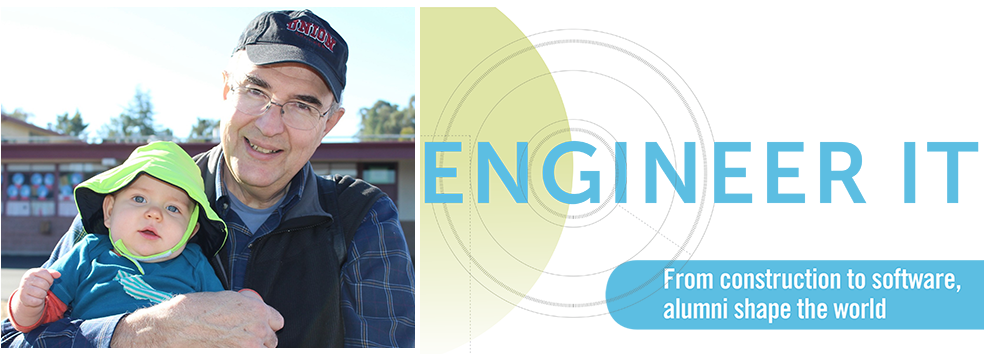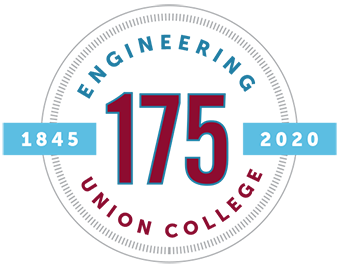Making his mark in energy and defense
Thomas J. Baca ’76, then one of a few Hispanic students at Union, in five years earned a double major in mechanical engineering and Latin American studies. (His wife, Helen Kennicott Baca ’76 was a chemistry major.) He holds an M.S. in mechanical engineering and a Ph.D. in civil engineering, both from Stanford University. Retired after 35 years with Sandia National Laboratories in Albuquerque, N.M, his area of expertise was structural dynamics analysis, experimentation and design qualification.
At Sandia, he contributed to the success of a wide range of national defense and energy projects, ranging from micro-electro-mechanical system (MEMS) devices to large-scale wind turbines and strategic missile systems. He retired as manager of the Analytical Structural Dynamics, responsible for using teraflop computer modeling to certify the functionality of nuclear weapon components without the use of underground testing.
He is an associate fellow in the American Institute of Aeronautics and Astronautics and a lifelong member of the American Society of Mechanical Engineers. While at Sandia, he was heavily involved in the Hispanic Leadership Outreach Committee and Sandia’s STEM enrichment program for middle school students in the greater Albuquerque area. He spent 15 years as a member of the board of trustees of his high school alma mater, Albuquerque Academy. 2020 was his 14th year as a member of the Civil Engineering Department Advisory Board at the University of New Mexico.
Thomas’ main hobbies are amateur photography and astronomy. He and Helen have traveled extensively across the U.S. and especially enjoy visiting their children and grandchildren on both coasts. They are providing full-time care and homeschooling for their two grandsons in Albuquerque.
What are/were the most challenging aspects of your career? What are/were the most rewarding?
I found the most challenging aspect of my career was dealing with change. I used a slide rule for my engineering classes and learned BASIC as a programming language at Union. By the time I retired from Sandia, we were using massively parallel computing platforms to solve multi-physics engineering simulation problems. I was consistently reminded that Union taught me not only how to learn (so that I could always modernize my set of engineering tools), but also taught me engineering fundamentals (so that I could judge the credibility of the results). The most rewarding aspects of my career were to use my technical and management skills to recruit and support the success of new generations of engineers. They continue to advance the art and science of engineering and tackle our most challenging engineering needs for the future.
How has your engineering degree been useful in another field?
I am going to turn this question around and tell you why my Latin American Studies degree has been useful to my work in engineering. First, writing skills. My writing skills from my LAS degree have definitely been a boon throughout my career in engineering. Most engineers are not very adept in documenting their work and writing proposals. Second, problem definition skills. Social science analysis requires being able to integrate many different perspectives and phenomena into postulated theories. It is not an exact science, but studying political science, for example, is excellent preparation for formulating solutions to tough engineering problems.
Finally, “thinking outside the box.” Studying the history, language, literature, politics and social structure of other societies is the essence of trying to extend our engineering norms to develop novel and game-changing engineering solutions.
What was your most formative experience at Union?
My first-year courses in engineering convinced me that I wanted to major in mechanical engineering. But my senior honors thesis on “Accelerated Fatigue Testing Of Artificial Mitral Heart Valves” as part of Prof. J. Richard Shanebrook’s research team showed me how integrating many aspects of my academic skills could come together to advance the state of knowledge on an important biomedical engineering problem. My most formative experience for my Latin American studies degree was spending my required term abroad in Seville, Spain. There, I did my independent study project on engineering in Spain and learned that the “American” way of living and engineering is not necessarily the only or best way to be happy or solve problems.
What’s the best piece of advice (professional or personal) you ever received?
To be truly happy, use your talents and opportunities to make the world a better place for family, friends and fellow humans.


